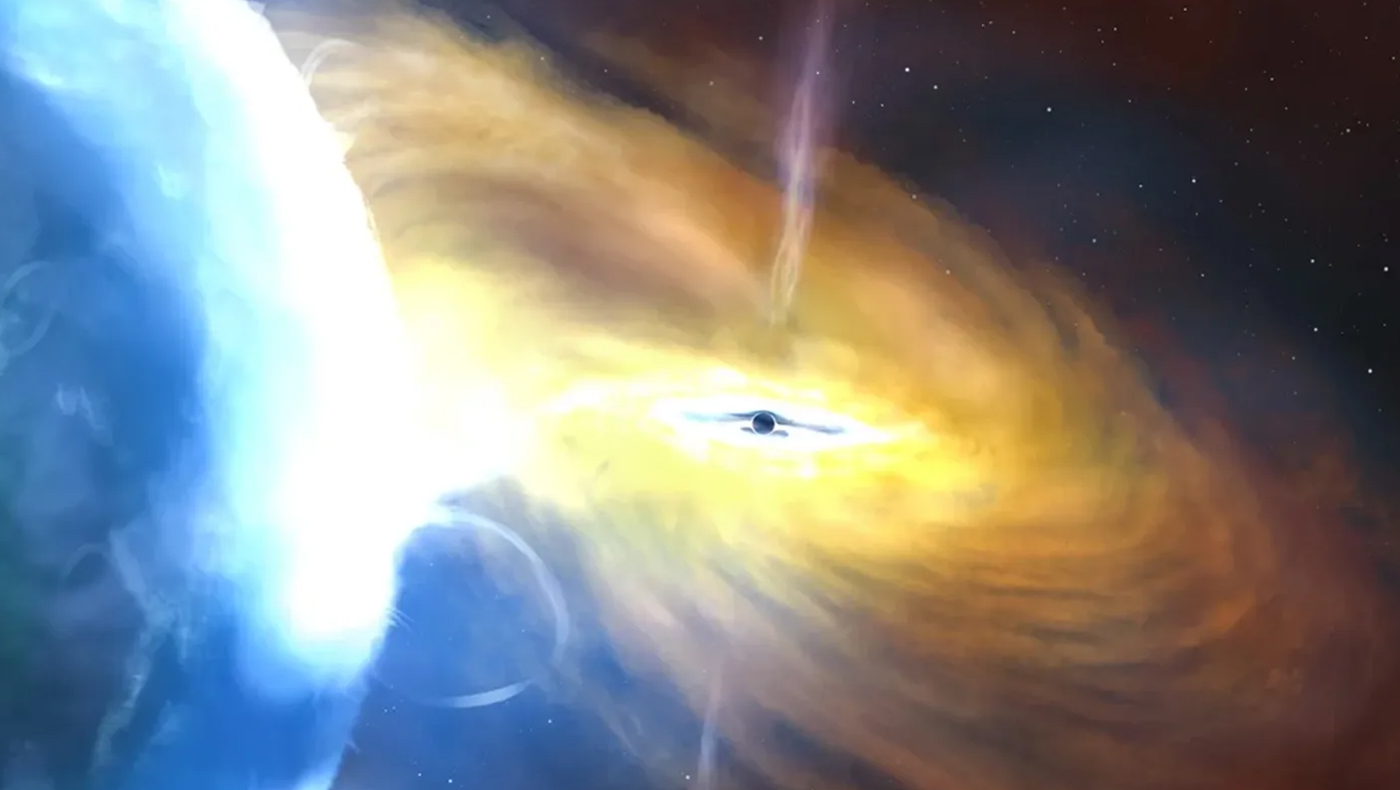Scientists discovered the largest ever cosmic explosion. What’s the big deal about this big bang?
Astronomers have discovered the biggest cosmic explosion ever witnessed, a massive burst of energy 2 trillion times brighter than our sun and 10 times more powerful than the most powerful supernova.
The explosion, which occurred 8 billion light years away from Earth billions of years ago, has been erupting for three years without any signs of slowing down. Although scientists at first struggled to determine the cause of the cosmic blast, which they have named AT2021lwx, they now think the culprit is a supermassive black hole that came in contact with a gargantuan cloud of gas. That’s according to findings recently published in Monthly Notices of the Royal Astronomical Society.
Stretching across a space that is 100 times the size of our solar system, the black hole formation is currently giving off 100 times more energy than the sun will emit over the course of its entire 10-billion-year lifetime
The explosion itself is far from Earth, but its discovery could help scientists better understand black holes, which sit at the center of many galaxies, including our own.
“It really seems like, especially when they have time to do some more modeling, this will be an important step in understanding what’s happening in the middle of galaxies,” says Jonathan Blazek, a physics professor at Northeastern University.
Read more from Northeastern Global News
Illustration by John A. Paice

